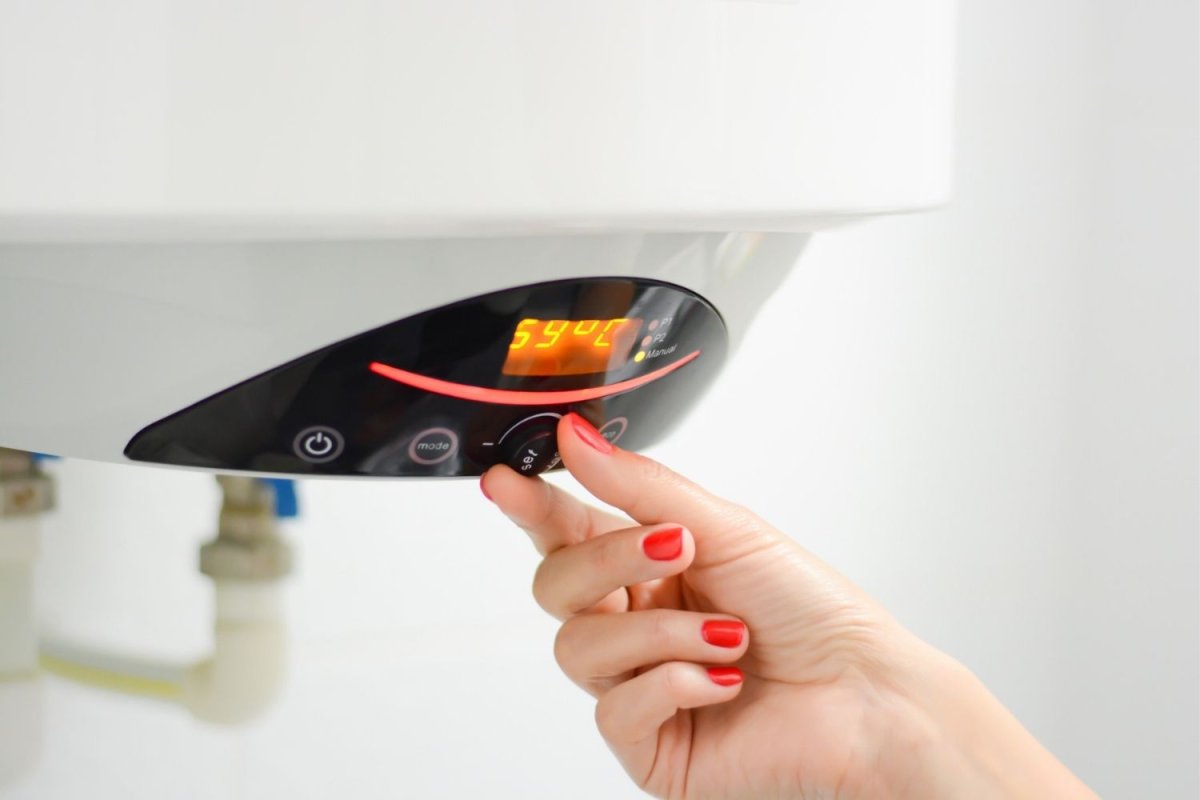

We may earn revenue from the products available on this page and participate in affiliate programs. Learn More ›
Q: My water heater is over 10 years old, and it’s started making strange noises and knocking sounds. Should I replace my water heater before it fails? Or should I wait until it stops working?
A: The life of a water heater varies depending on how well it’s been maintained and what type of water heater it is. On average, traditional tank storage water heaters can last from 10 to 15 years, and tankless styles can last 20 years or more. Suppose you notice signs that your water heater needs to be replaced, such as odd sounds emanating from it, inconsistent or no hot water, discolored water, visible corrosion on the tank, or the water heater leaking. In that case, it’s time for a replacement. There are several reasons to consider water heater replacement before yours stops working completely. If you wait until the hot water tank stops operating, you could be stuck without hot water for several days while you wait for a new heater. Replacing it before it becomes an emergency will give you time to research other types of water heaters that might save you money in the long run. You can take your time and choose between gas, electric, or solar-powered water heaters, or you might decide you want to go tankless. Here are a few considerations to keep in mind when answering the question,“Should I replace my water heater before it fails?”
Replacing a water heater before it fails can save your home from damage.
When a water heater fails, there are several possible risks to your home. One is damage from a leaking tank. When the heater leaks, it’s typically beyond the scope of hot water heater repair. If you notice the tank is leaking, turn off the water supply and power to the unit to prevent further damage. Depending on where the water heater is located, leaking and pooling water could do some severe harm to floors, walls, furniture, and belongings. If a water heater bursts, you could be looking at 50 gallons of water in your basement, laundry room, or garage. Regular maintenance can help avoid catastrophic failure. Checking the sacrificial anode rod that attracts corrosive compounds and replacing it when it rusts will help protect the tank from corrosion and rust. Water damage in your home could lead to mold and mildew growth, which can cause even further damage and put household members’ health at risk.

Replacing your water heater before it breaks removes the pressure of a quick decision.
Replacing the water heater before it stops working will allow you to research other types and models of heaters. You’ll have extra time to decide if you want to purchase a tankless heater or go for a solar-powered option. If you’ve noticed that you never seem to have enough hot water for your family, this may be a good time to upgrade to a larger tank to accommodate everyone’s needs. If your heater fails suddenly, chances are you’ll be focused on replacing it as quickly as possible without having time to consider any alternative options, which may leave you with a choice you regret down the line.
A broken water heater may leave you without hot water for several days.
No one wants to take cold showers or go through the hassle of heating water and transferring it to the bathtub just to wash up. It may take several days of waiting for professionals to come to your house to install a new heater. If you decide to replace the water heater before it fails, you can conveniently schedule the installation when it works best for you.

An updated water heater could save money on your energy bills.
When an old water heater begins to fail, it needs to use more energy to heat the water properly. If you notice your utility bills creeping higher for no reason, it may be because of a failing water heater. When you invest in a new water heater, it could save you money on your energy bills—especially if you opt for a tankless version. A tankless (or on-demand) water heater only heats water when needed, resulting in significant savings on utility bills. Since water heater technology is constantly being updated, even a new traditional tank water heater will be more energy efficient than your previous model.
Look for some signs that your water heater may be reaching its limits.
Some clues that a water heater is nearing the end of its life are rusty or discolored water coming out of the faucets, the heater making odd noises, visible tank corrosion, and signs of leaks. Rusty water is a sign that the heater is rusting and corroding on the inside and might leak soon, and it’s one of the critical signs of a failing water heater. If the heater is making loud noises, that’s a sign of sediment buildup within the tank. As the sentiment hardens, it will move around and cause knocking, rumbling, popping, and gurgling noises. This will make the heater work harder and drive up energy costs. There is no repair for visible corrosion and rust, and these factors will eventually create leaks. If you’re already seeing rust or corrosion, the water heater will need to be replaced as soon as possible. But even if you notice some of the less imminent signs, don’t wait for your water heater to fail. Contact trained experts to replace your water heater so you can continue to enjoy hot water in your home and save yourself money and hassle in the future.
